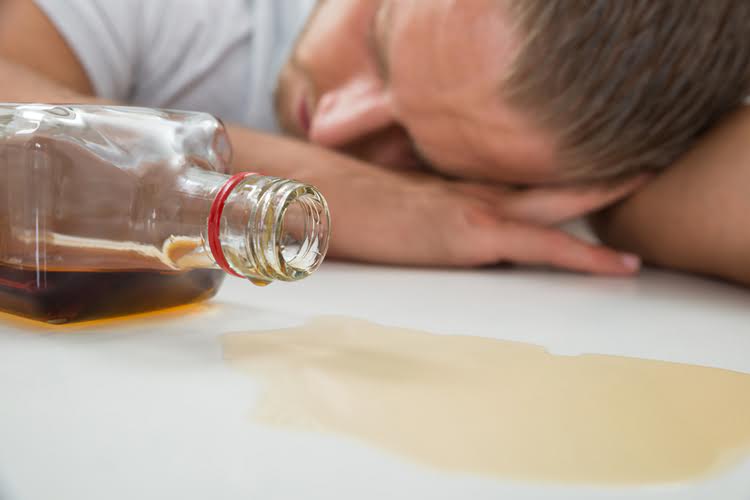The Difference Between Alcohol Abuse vs Alcoholism
Dr. Hoffman has successfully treated hundreds of patients battling addiction. Dr. Hoffman is the Co-Founder and Chief Medical Officer of AddictionHelp.com and ensures the website’s medical content and messaging quality. Neither Schaffner nor Rahman could explain why light drinkers have a lower risk of all-cause mortality than nondrinkers. But they agreed that alcohol is a major public health challenge, not only in the U.S. but around the world. There are 140,000 alcohol-related deaths in this country each year, Rahman said, and there were 2.8 million deaths globally in 2016, according to the Lancet paper. Of 30 things linked to diseases of your heart and blood vessels, it said, 90% are found more often among nondrinkers, including body weight.
Someone who abuses alcohol may not necessarily be dependent on it, but their drinking can still lead to serious problems in their life. On the other hand, someone struggling with alcoholism will experience withdrawal symptoms if they try to quit or cut back on their drinking. They may also have obsessive thoughts about drinking and prioritize it over other important aspects of their life. Long-term alcohol abuse can cause liver damage, which can lead to liver failure.
What Is Alcohol Use Disorder?
In a situation where there isn’t enough money to pay for both rent and alcohol, a severe alcoholic will spend their last dollars on another drink before securing shelter. People with alcoholism may also struggle with the compulsion to drink or have a lack of control when it comes to drinking. They may struggle to control a persistent compulsion to drink, despite being aware of the repercussions of their habit. The major signs that someone has alcoholism are tolerance and withdrawal. People who abuse alcohol may have repeated run-ins with the law, such as frequent DUIs.
- Having a strong support system in place can make all the difference when it comes to avoiding relapse.
- They may also have obsessive thoughts about drinking and prioritize it over other important aspects of their life.
- Finding a community of your peers who are also trying to get sober can help provide support during early recovery.
It's important to seek help if you or someone you know is struggling with alcohol abuse. Treatment options include counseling, support groups, and medication-assisted therapy. With the right support and resources, it's possible to overcome alcohol abuse and live a healthy, fulfilling life. Outpatient treatment allows you to live a normal life while attending planned addiction treatment sessions.
Alcohol Abuse Vs Dependence: What’s the Difference?
An alcoholic will not be able to consistently or reliably limit their intake. The person often can’t, or won’t, stop drinking even when it causes severe and detrimental health issues, not to mention relational and legal issues. An alcoholic may not even drink every day, but when they do, they almost always lose control of when, or if, they stop.
Alcoholism, sometimes referred to as alcohol dependence, is a brain disease characterized by excessive alcohol intake. If you see a doctor for your alcohol use, they will not diagnose you as an alcoholic. Instead, they will use the symptoms in the DSM-V to determine whether you have a mild, moderate or severe AUD.
How Long Does It Take to Absorb Alcohol?
A person can change their alcohol abuse patterns through therapy and willpower, and a mindful, intentional change in drinking habits. The first step is always to see your doctor about your struggles and learn what they recommend depending on how severe the alcohol use is. API is a private, physician-owned what is the difference between alcohol abuse and alcoholism behavioral health system offering inpatient and outpatient psychiatric and substance use disorder services. We are dedicated to the wellness of individuals, their families, and our community through prevention, intervention, and treatment in a safe and culturally sensitive environment.

A doctor may also prescribe medications to help you manage withdrawal symptoms and support you in your effort to stop drinking. Benzodiazepines can help alleviate withdrawal symptoms, while naltrexone may help you manage alcohol cravings. Looking at the symptoms mentioned above can give you an idea of how your drinking may https://ecosoberhouse.com/ fall into harmful patterns and indicate whether or not you have a drinking problem. For example, " abuse " may imply that the behavior is intentional and controllable and, therefore, a personal failure rather than a disease symptom. Referring to this condition as alcohol use disorder is more accurate and less stigmatizing.
Tolerance is when they need to increase the amount of alcohol they drink to experience the same side effects. As their tolerance to alcohol increases, the more of it they’ll consume. Increased tolerance then gives way to physical dependence, which is when an individual physically needs to consume alcohol to feel normal. When used by a physician to screen patients for possible AUDs, two positive responses to the four CAGE questions indicate that further assessment is needed. Keep in mind that, while helpful in determining whether your current drinking habits could be problematic, these tests should not be considered a medical diagnosis. Continue reading to learn the differences between problem drinking vs. alcoholism, how problem drinking can lead to addiction, the definition of alcoholism, how to cut back or seek treatment if necessary.
If you have a history of withdrawal symptoms, see a health professional before quitting. You should also see a professional before quitting alcohol if you have other health conditions. But alcohol misuse, also known as excessive drinking, has a more immediate impact, whereas the symptoms of AUD will be more prolonged. For example, any alcohol consumption by a pregnant person can be considered alcohol misuse, as well as drinking under the legal age of 21. Alcohol withdrawal can begin within hours of ending a drinking session. Our alcohol rehab facilities serve communities from Florida to Washington, specializing in a range of addiction recovery services.

